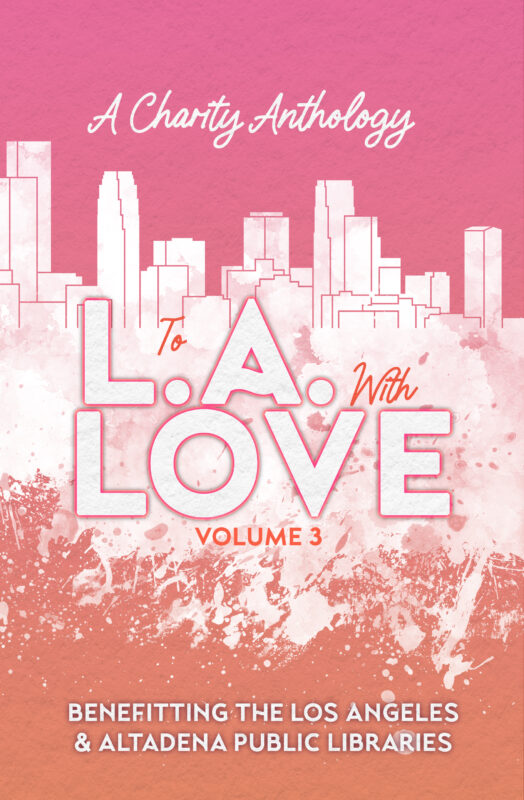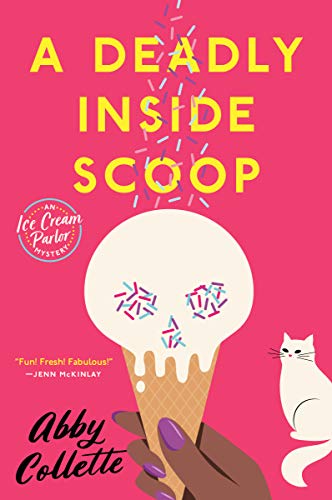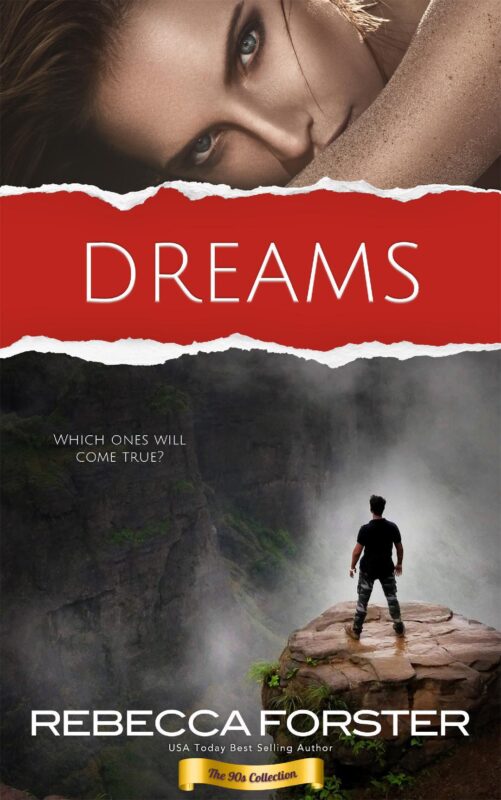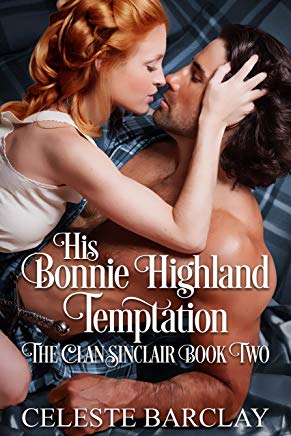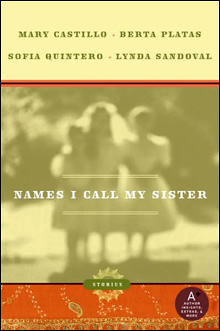STUMPED
April 15, 2018 by Rebecca Forster in category Writing tagged as Craft, fun, help, mystery, psychology, thriller, writing The other day I came home to find the men I hired to build my patio sitting in my backyard looking at a stump. This was not a normal stump. This was a giant. Paul Bunyan, Big John kind of stump. I sat down with them and I, too, considered the stump.
The other day I came home to find the men I hired to build my patio sitting in my backyard looking at a stump. This was not a normal stump. This was a giant. Paul Bunyan, Big John kind of stump. I sat down with them and I, too, considered the stump.
“George had to get his chain saw for that sucker,” one of them finally said.
“Took two hours to get it out,” another offered.
“I think it broke George’s saw,” the first chimed in.
“Why didn’t you leave it in the ground,” I asked. “You know, pour the cement around it?”
“We thought about it,” the third said. “It wouldn’t have been right.”
They told me that they had managed to cut it up into the piece we were looking at but that it had been twice as big and buried deep in the ground; a remnant of a primordial tree. Their task had been Herculean. They told me that if they poured the cement over the stump, the darn thing could rot and my steps would fall in, and I would be upset with them because they had poured cement over a stump the size of San Francisco.
“It looks petrified,” I said. “How many years do you think it would take to rot?”
The first guy shrugged, “Twenty. Thirty years.”
I shrugged back. I would probably be dead by the time the stump rotted and my stairs fell in. I guess it was the principal of the thing. They would have known the stump was there.
We sat in the hot sun a while longer. Someone suggested carving the stump into the likeness of the contractor. I liked that idea but no one knew how to carve. I thought we could make it into a table. Eventually, we all stopped looking at the stump. The men moved it out of the way and started work again; I went inside to make dinner.
That stump has now been in my backyard for months. I can’t bring myself to get rid of it. But, like all things that are hard to get rid of, it eventually served a purpose. It taught me a few lessons:
1) Everybody has a stump. It might be in your real backyard, your professional backyard or your personal backyard, but it is undoubtedly there.
2) What you do with your stump will tell you a lot about yourself. Either you will dig it up and deal with it, or you will leave it to rot.
3) If you’re stumped and need help there is always someone willing to work hard with you to take care of it as long as you work as hard as they do.
4) You can never go through a stump but don’t panic. You can go around them, over them and sometimes even under them but that takes the longest.
5) Sometimes stumps are not as big as they look and sometimes they are bigger. Size doesn’t matter. Stumped is stumped.
 SECRET RELATIONS, book #3 of the Finn O’Brien Thriller series is available now.
SECRET RELATIONS, book #3 of the Finn O’Brien Thriller series is available now.
Reach me now!
Follow me on:
3 0 Read moreNow & Then: An Author Looks Back
March 15, 2018 by Rebecca Forster in category The Write Way by Maureen Child, Writing tagged as author, Craft, history, inspiration, writing I am updating my early romances and contemporary women’s fiction novels with the intention of re-releasing them. I am excited because these books were my training ground. In these pages I can hear the first tentative sounds of my distinct ‘author’s voice’. I see that I instinctively had a good grasp of what makes a story work (don’t all voracious readers have that instinct?). There is one more thing I see in these books that is hard to embrace: my major author ‘dork’. I have no other word for my early writing stumbles. Some of them were mistakes of publishing fashion and others were born from an untrained sense of drama.
I am updating my early romances and contemporary women’s fiction novels with the intention of re-releasing them. I am excited because these books were my training ground. In these pages I can hear the first tentative sounds of my distinct ‘author’s voice’. I see that I instinctively had a good grasp of what makes a story work (don’t all voracious readers have that instinct?). There is one more thing I see in these books that is hard to embrace: my major author ‘dork’. I have no other word for my early writing stumbles. Some of them were mistakes of publishing fashion and others were born from an untrained sense of drama.
Since hindsight is a wonderful thing, I thought I’d share my top three ‘author dork’ mistakes.
1) Hysterical dialogue: This is not an industry term so don’t use it with an editor. Sill, I think it perfectly describes my use of long sentences, harsh words, and huge banks of exclamation points to get across a character’s anger, distress, fear and passion.
Solution: In my later work, I learned that proper scene set-up, thoughtful exposition, and spare and realistic dialogue give me a lot more dramatic punch.
2) Fad over fashion: Within the first few pages of Seasons (a book I really love) my heroine appears in Laura Ashley dress. If you’re old enough to know who Laura Ashley is, you’re cringing at the image. If you’re not old enough to know then I have made you stumble as you try to figure it out. I have no doubt I will also run across references to big shoulder pads and power suits.
Solution: I now describe clothing generally – jeans, slacks, blazer, leather jacket – to allow the reader to fill in the detail blanks. I use color to underscore character. I never use a designer name or a fad because this dates a book. The only exception is when I need the fad to assist in a plot point. For instance, a label in a corpse’s clothing might call out a specific designer.
3) Overwriting: When I first started writing there seemed to be an accepted rule of thumb that a chapter was twenty pages, that women’s fiction and romance were not worthy unless the author lingered over love scenes and dialogue was drawn out. If there is purpose to long stretches of prose or dialogue then go for it, but if during the edit the author can’t remember what happened in the last three pages of a book then the reader won’t remember either.
Solution: Tell the story. Do not write to word length. Either the story is solid and will move along at a good clip or it won’t, either it will be 100,000 words or it won’t. The readers won’t stick with you.
The good news is that I am happy with these early books and will not fundamentally change them. I will, however, make them better by applying what I know now to what I wrote then. If only we could do the same thing with our high school yearbook pictures the world would be perfect!
Happy writing.
 Don’t forget to check out my latest release, Secret Relations, book 3 in the Finn O’Brien Thriller Series.
Don’t forget to check out my latest release, Secret Relations, book 3 in the Finn O’Brien Thriller Series.
Here’s where you can find me!
Website: http://rebeccaforster.com
Facebook:
Personal: https://www.facebook.com/rebeccaforster
Author page: https://www.facebook.com/RebeccaForster4/
Twitter: @Rebecca_Forster
Instagram: https://www.instagram.com/rebeccaforster1211/
Subscribe to my newsletter and get my 2-book starter library:
The Unromantic Romantic
February 15, 2018 by Rebecca Forster in category The Write Life by Rebecca Forster tagged as author, romance, romance genre, romantic, thrillers, writing, writing craft Early in my career, when I was writing romance and women’s fiction, a bookseller, who I greatly admired, commented that my idea of romance was a chuck on a man’s shoulder. The other authors gathered in her store for a book signing laughed – and so did I. She was right in context of the romance genre. I was never comfortable writing love scenes or covering my ‘author lens’ with gauze. I didn’t care for characters having long involved conversations about their relationships. It never occurred to me to have brooding heroes or pining heroines. I was less interested in cupid, than I was in the arrow he shot and, I suppose, that is why I write thrillers now.
Early in my career, when I was writing romance and women’s fiction, a bookseller, who I greatly admired, commented that my idea of romance was a chuck on a man’s shoulder. The other authors gathered in her store for a book signing laughed – and so did I. She was right in context of the romance genre. I was never comfortable writing love scenes or covering my ‘author lens’ with gauze. I didn’t care for characters having long involved conversations about their relationships. It never occurred to me to have brooding heroes or pining heroines. I was less interested in cupid, than I was in the arrow he shot and, I suppose, that is why I write thrillers now.
However, that does not mean I am unromantic. Why? Because in each of my books I take great care with character relationships, character’s moral core, their willingness to take chances and their curiosity about their mysterious world. To convince myself I was correct in believing these attributes to be romantic, I looked up the definition. Here you go, straight from Meriam/Webster:
Romantic: marked by the imaginative or emotional appeal of what is heroic, adventurous, remote, mysterious or idealized.
In other words, romance for one heart might carry an emotional connotation that leads to a sexual encounter or a committed relationship. For my heart, romance is embodied in how characters react to challenge. As a thriller writer I want my reader to feel the romance of suspense, of mystery, of the idealization of a hero who will walk through fire to make things right.
I find John McClane in Die Hard, Indiana Jones in any of the Indiana Jones movies, romantic and yet you never see them in sexual situations. The focus of these movies is on action within a mysterious world. The romantic in me sighs over their heroics, my heart beats faster at their commitment to justice and the place of honor in which they put women while also treating them as equals in adventure.
Whether you are an author or are a reader, do not pigeonhole the idea of romance. If you do, you will be limiting your talent and your reading enjoyment.
This Valentine’s Day, I hope cupid brought you candies and flowers. In the next year, I wish you a different kind of romance; the kind that take you to exotic, mysterious and adventurous places in your imagination.
XOXO,
The unromantic romantic
USA Today and Amazon bestselling author, Rebecca Forster is the author of over 38 novels including the acclaimed The Witness Series and her new Finn O’Brien Thriller series. She is married to a Superior Court judge and is mother to two sons.
Find Rebecca here:
Website: http://rebeccaforster.com
Facebook: https://www.facebook.com/RebeccaForster4/
Twitter: @Rebecca_Forster (https://twitter.com/Rebecca_Forster)
Subscribe and get my 2-book starter library: http://rebeccaforster.com/thriller-subscribers/
Bookbub: https://www.bookbub.com/authors/rebecca-forster
5 0 Read moreDEVILISHLY GOOD DETAILS
January 15, 2018 by Rebecca Forster in category The Write Life by Rebecca Forster tagged as Craft, creativity, inspiration, movies, process, Storytelling Yesterday my husband and I decided to inaugurate the MoviePass cards our son gave us for Christmas. With one swipe (and $10 a month) we can see as many movies as we like at any theater.
Yesterday my husband and I decided to inaugurate the MoviePass cards our son gave us for Christmas. With one swipe (and $10 a month) we can see as many movies as we like at any theater.
Our first movie would be The Post at our local theater. It took both of us, and the manager, to figure out how to make the card work (which in hindsight should not have been necessary if we understood our phone settings). Finally, we swiped our cards only to find that The Post was sold out. That pushed us to our default selection: any movie that was not sold out. We ended up in a nearly empty theater watching Jumanji, the 20-year-later sequel to Robin William’s wonderful movie by the same name.
Jumanji is a fanciful action-adventure movie about a game that sucks people into an alternate universe and in order to get home, the player must win the game. In William’s version, he was the only one who disappeared. This version has an ensemble cast that includes The Rock, Jack Black and two other actors we weren’t familiar with but who were perfectly cast.
The movie began, the music was ominous, the set up delightful, the locations beautiful and the direction energetic. The kids in the theater reacted with oohs, aahs, and other exclamations of delight.
Oh, wait! That was me oohing and aahing!
Yep, I loved every bit of that movie and when I got home I realized the reason I loved it was because I lost myself in the storytelling. Everyone from the screenwriter to the lighting guy and cast was on board with the creative vision. The premise was quickly and clearly established. Casting was based on character and not on what looks that the producers deemed ‘sexy and salable’. The computer-generated stunts did not overpower the story nor did they last so long that the viewer could literally leave, have dinner and come back and they would still be crashing about on screen. If something fantastic happened – like characters dying and getting shot into space and suddenly falling back to earth again without injury – the viewer accepted it because it quickly became apparent that each piece of this story had a purpose. There was always a payoff that made sense. Threads were wrapped up at the end. The story built to a conclusion and didn’t present it. But better than anything, the actors never broke character. The adult actors were asked to channel their teenage counterparts in the real world that had been left behind. I have seen this transference in movies before but too often the adult actor simply remains an adult. The last time I saw this plot point beautifully executed was in Tom Hanks’s Big.
So, here’s what I want you to do. Before you write another word, before you start editing, go see Jumanji. It is one of the best lessons in pitch-perfect storytelling I’ve had in a very long time. As for me, I’m going back to work and give my manuscript the Jumanji treatment because the devilish details are what make for a heavenly story.
Subscribe and get my 2-book starter library FREE:
Follow me on Bookbub!
Follow me on Facebook
Follow me on Twitter
4 0 Read moreYou Have My Permission
December 15, 2017 by Rebecca Forster in category Writing tagged as cruise, inspiration, journey, permission, Travel, writing Anyone who knows me knows that I love an adventure. Being asked to speak aboard a ship was definitely on my bucket list, so I jumped at the chance when I was asked to be an onboard lecturer. I prepared five talks that I thought were rather compelling: Peek Behind the Covers, a Look at Publishing, The Caribbean Influence on Popular Literature and Movies, The Five People You Should Meet in the Caribbean, How to Travel like an Author and Everyone has a Story: What’s Yours?.
Anyone who knows me knows that I love an adventure. Being asked to speak aboard a ship was definitely on my bucket list, so I jumped at the chance when I was asked to be an onboard lecturer. I prepared five talks that I thought were rather compelling: Peek Behind the Covers, a Look at Publishing, The Caribbean Influence on Popular Literature and Movies, The Five People You Should Meet in the Caribbean, How to Travel like an Author and Everyone has a Story: What’s Yours?.
Since I had sailed on this ship as a passenger, I knew the people coming to listen to me were well traveled, curious, intelligent and fun. On my speaking days, they gathered to hear me in the big theatre to watch my PowerPoint presentations and see me slide hither and yon on the dance floor when the sea got rough. At the end of each of my presentations, I asked if there were questions. There weren’t – at least not questions for public consumption. Instead, many in the audience came to speak to me privately. They wanted to talk about their own writing ambitions. There was a surgeon who wanted to write a children’s book, a woman in her nineties whose own children were asking that she write a memoir. There was a man who had written a business book a decade ago but he had always wanted to write a novel. And there was a composer who, as he listened to me, thought to combine lyrics and a story to create a unique novel.
After listening to every person who spoke to me after my lecture, or caught me on deck, or sat with me in the dining room it finally dawned on me what they were after. They wanted my permission to follow their dreams.
[tweetshare tweet=”@Rebecca_Forster: You have my permission . . .follow your dreams.” username=”A_SliceofOrange”]
Strangely, when it comes to fiction or memoir, many of us believe that our words are not as valuable as the next persons. We convince ourselves that writing with honesty and passion will somehow diminish us in the eyes of the world – or at least those we care about. We offer our writing up with caveats like ‘it is silly’, ‘you probably won’t like it’, and ‘promise not to laugh’.
I heard these things in the voices of the people on that ship, but when we were done talking I heard something else. I heard confidence. I heard the excitement. I heard their brains turning as they planned their books. By taking that first step – admitting they harbored dreams of authorship to someone who was already there – they had given themselves permission to write. When we all parted, I knew exactly where they were going. They were going home to put pen to paper or fingers to keyboards. They had taken more than a cruise, they had taken a journey and I have no doubt that by the end of that journey they will have written their book.
Give yourself permission to do whatever it is you dream of doing. If your dream is to write a book, do it with honesty and passion – and don’t forget to share it with the rest of us.
Rebecca
1 0 Read more
Affiliate Links
A Slice of Orange is an affiliate with some of the booksellers listed on this website, including Barnes & Nobel, Books A Million, iBooks, Kobo, and Smashwords. This means A Slice of Orange may earn a small advertising fee from sales made through the links used on this website. There are reminders of these affiliate links on the pages for individual books.
Search A Slice of Orange
Find a Column
Archives
Featured Books
To L. A. With Love Volume 3
When wildfires damaged two beloved Los Angeles public libraries in January 2025, the romance community answered with heart.
More info →NAMES I CALL MY SISTER
Four stories of sisterhood—the bonds, the wars, the frustrations, the love—seasoned with hot Latin spice!
More info →Newsletter
Contributing Authors
Search A Slice of Orange
Find a Column
Archives
Authors in the Bookstore
- A. E. Decker
- A. J. Scudiere
- A.J. Sidransky
- A.M. Roark
- Abby Collette
- Alanna Lucus
- Albert Marrin
- Alice Duncan
- Alina K. Field
- Alison Green Myers
- Andi Lawrencovna
- Andrew C Raiford
- Angela Pryce
- Aviva Vaughn
- Barbara Ankrum
- Bethlehem Writers Group, LLC
- Carol L. Wright
- Celeste Barclay
- Christina Alexandra
- Christopher D. Ochs
- Claire Davon
- Claire Naden
- Courtnee Turner Hoyle
- Courtney Annicchiarico
- D. Lieber
- Daniel V. Meier Jr.
- Debra Dixon
- Debra H. Goldstein
- Debra Holland
- Dee Ann Palmer
- Denise M. Colby
- Diane Benefiel
- Diane Sismour
- Dianna Sinovic
- DT Krippene
- E.B. Dawson
- Emilie Dallaire
- Emily Brightwell
- Emily PW Murphy
- Fae Rowen
- Faith L. Justice
- Frances Amati
- Geralyn Corcillo
- Glynnis Campbell
- Greg Jolley
- H. O. Charles
- Jaclyn Roché
- Jacqueline Diamond
- Janet Lynn and Will Zeilinger
- Jaya Mehta
- Jeannine Atkins
- Jeff Baird
- Jenna Barwin
- Jenne Kern
- Jennifer D. Bokal
- Jennifer Lyon
- Jerome W. McFadden
- Jill Piscitello
- Jina Bacarr
- Jo A. Hiestand
- Jodi Bogert
- Jolina Petersheim
- Jonathan Maberry
- Joy Allyson
- Judy Duarte
- Justin Murphy
- Justine Davis
- Kat Martin
- Kidd Wadsworth
- Kitty Bucholtz
- Kristy Tate
- Larry Deibert
- Larry Hamilton
- Laura Drake
- Laurie Stevens
- Leslie Knowles
- Li-Ying Lundquist
- Linda Carroll-Bradd
- Linda Lappin
- Linda McLaughlin
- Linda O. Johnston
- Lisa Preston
- Lolo Paige
- Loran Holt
- Lynette M. Burrows
- Lyssa Kay Adams
- Madeline Ash
- Margarita Engle
- Marguerite Quantaine
- Marianne H. Donley
- Mary Castillo
- Maureen Klovers
- Megan Haskell
- Melanie Waterbury
- Melisa Rivero
- Melissa Chambers
- Melodie Winawer
- Meriam Wilhelm
- Mikel J. Wilson
- Mindy Neff
- Monica McCabe
- Nancy Brashear
- Neetu Malik
- Nikki Prince
- Once Upon Anthologies
- Paula Gail Benson
- Penny Reid
- Peter J Barbour
- Priscilla Oliveras
- R. H. Kohno
- Rachel Hailey
- Ralph Hieb
- Ramcy Diek
- Ransom Stephens
- Rebecca Forster
- Renae Wrich
- Roxy Matthews
- Ryder Hunte Clancy
- Sally Paradysz
- Sheila Colón-Bagley
- Simone de Muñoz
- Sophie Barnes
- Susan Kaye Quinn
- Susan Lynn Meyer
- Susan Squires
- T. D. Fox
- Tara C. Allred
- Tara Lain
- Tari Lynn Jewett
- Terri Osburn
- Tracy Reed
- Vera Jane Cook
- Vicki Crum
- Writing Something Romantic
Affiliate Links
A Slice of Orange is an affiliate with some of the booksellers listed on this website, including Barnes & Nobel, Books A Million, iBooks, Kobo, and Smashwords. This means A Slice of Orange may earn a small advertising fee from sales made through the links used on this website. There are reminders of these affiliate links on the pages for individual books.





